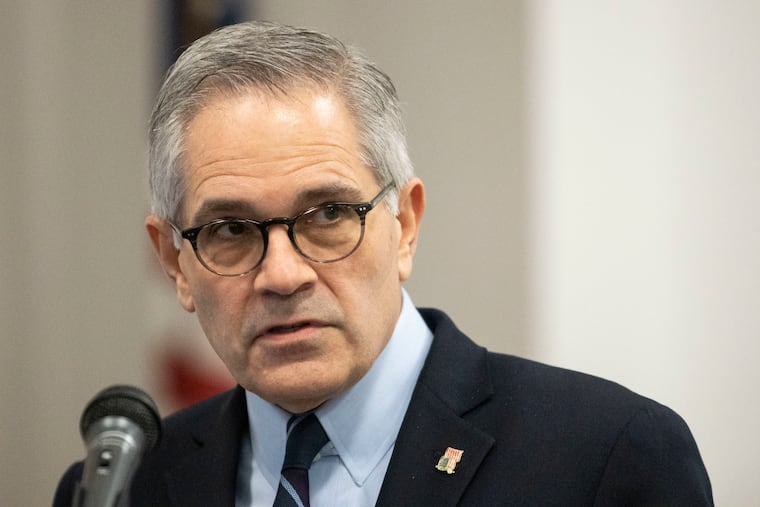How Philly, the nation’s most supervised big city, cut its probation numbers by a third
“It’s an enormous improvement in a city that has at times been the most over-supervised big city in the United States,” DA Larry Krasner said.

Three years ago, a national study of probation and parole called out Pennsylvania as a stark outlier. The Columbia University Justice Lab found that Pennsylvania was the third-most supervised state in the country. And Philadelphia, where one in 22 adults was under supervision, was the nation’s most supervised big city.
That came at a high cost, as many on probation find it creates obstacles to maintaining housing, education, and employment — as well as trip wires that can send them back to jail, even if they don’t commit a new crime.
On Monday, the Philadelphia District Attorney’s Office is set to release a report marking a milestone: Since 2018, the number of people under county supervision has declined by one-third, from 42,000 people to 28,000. The analysis credits policies introduced by District Attorney Larry Krasner, who instructed prosecutors, in most cases, not to seek supervision beyond 36 months for felonies or 12 months for misdemeanors.
Following that change, the average supervision term declined by about 10 months, with no measurable impact on recidivism, the report says. The policy also reduced racial disparities in sentencing: Previously, Black defendants were kept on probation on average 10.8 months longer than white defendants. Now, the average difference is 5.2 months, according to the report.
“It’s an enormous improvement in a city that has at times been the most over-supervised big city in the United States,” Krasner said. “That way, our probation officers don’t have double the caseloads national industry standards indicate they should have, and they can focus on the most dangerous and serious offenders.”
» READ MORE: The Probation Trap: How lenient sentences can lead to harsh consequences
Vincent Schiraldi, the Columbia researcher who authored the 2018 report, also called the policy shift a marked improvement — but said Pennsylvania will likely remain an outlier without legislative action to set limits on probation terms, as a majority of states already do.
At hearings in Harrisburg in recent years, judges have argued against that and in favor of individualized sentencing. But Schiraldi points to the racial impact of the D.A.’s policy as a potent counterargument.
“I’d value individualization if my son was before a Philadelphia judge,” he said. “But that comes at a cost, primarily to people of color. We have bias in ways we don’t fully understand and they always get a slightly worse deal. They get a worse deal at arrest, at prosecution, before the judge at sentencing, on parole and on probation.” The D.A.’s policy showed how an across-the-board cap, he said, “equalizes in a way that ... combats implicit bias.”
For the 28,000 people still on county supervision, however, it’s been a fraught year, according to Byron Cotter, director of alternative sentencing for the Defender Association of Philadelphia.
Reporting during the pandemic — when the probation office has been closed to in-person visits — has been particularly difficult, he said. “Often, you call the phone lines and their voicemails are full, and our clients are very frustrated,” he said.
His office has been working to locate people accused of absconding and reconnect them to probation to avoid warrants that put them at risk of arrest. And, he said, the Defender Association and the courts plan to post fliers advertising a “virtual safe surrender” event to help people resolve warrants.
To Alan Tauber, acting chief defender, lengthy probation terms “are drivers of incarceration rather than reintegration to the community. They rely too much on a set of compliance standards as opposed to services that are more often what is needed.”
Krasner said he’s asked the court and probation department to collaborate, for instance on identifying low-risk people who could be removed from probation administratively. They declined, he said.
So, he’s looking to more reforms he can accomplish on his own. Next steps include policies around offering plea deals that limit the number of conditions on probationers and allow them to earn early termination.
LaTonya Myers — who until recently was on probation herself, and founded a nonprofit, Above All Odds, to support people in reentry — said she still sees mixed outcomes in court.
“I’m seeing the DAs ask for this, and the judges do what they want to do. The judges are not really buying into it, or willing to loosen the collar. If you got a felony, and plead it down to the misdemeanor, they still want that 10-year or five-year, even if the recommendation of the DA was three years.”